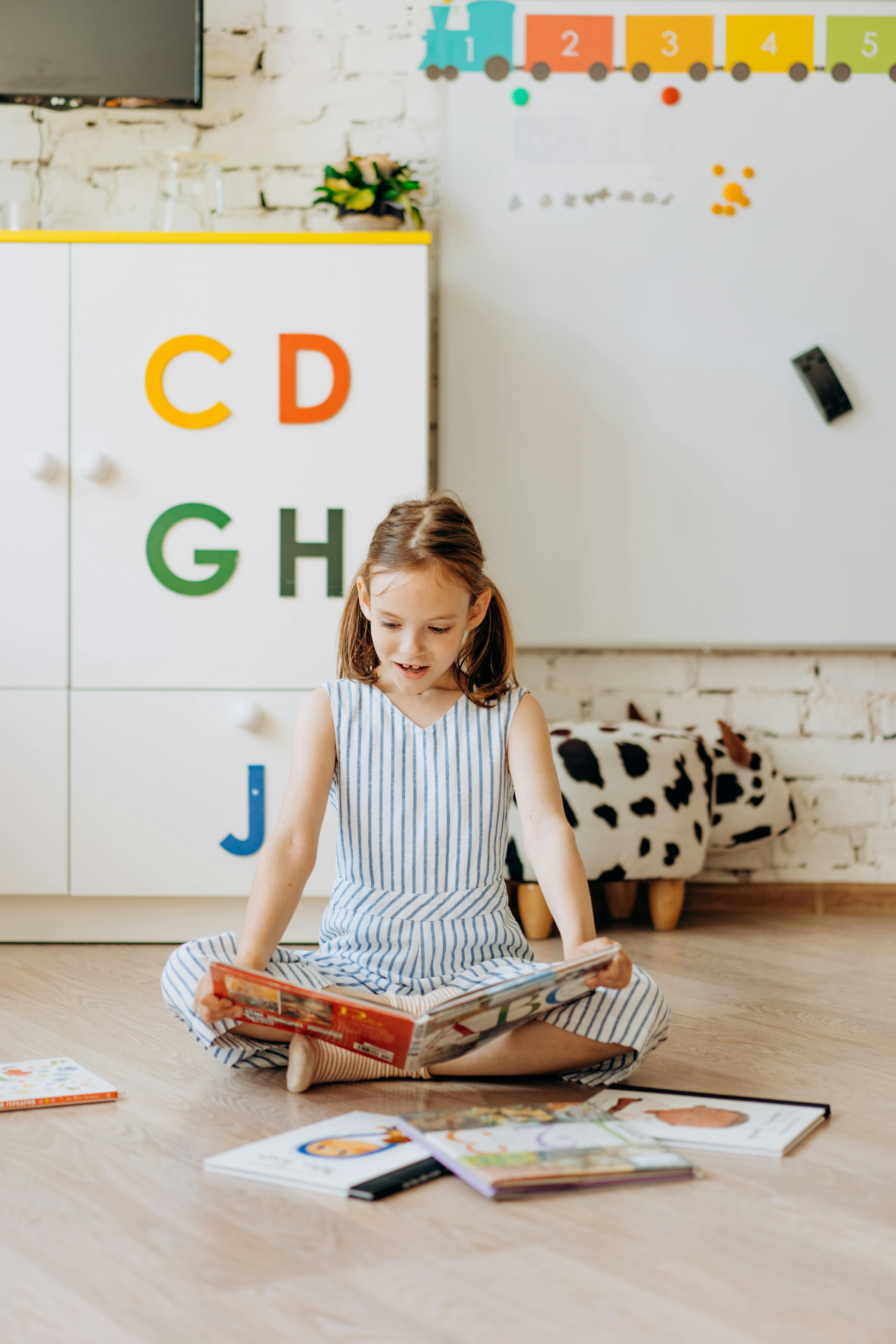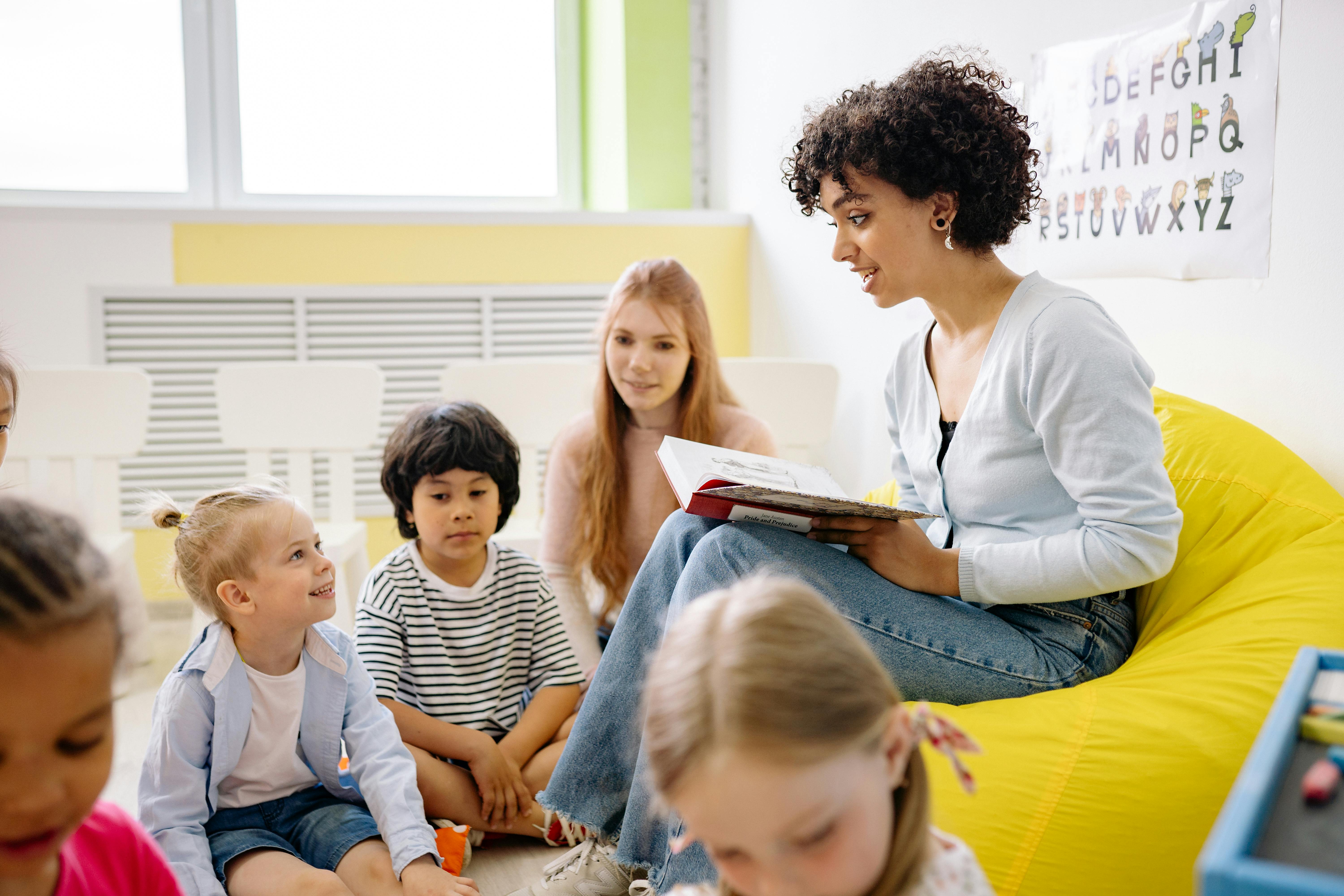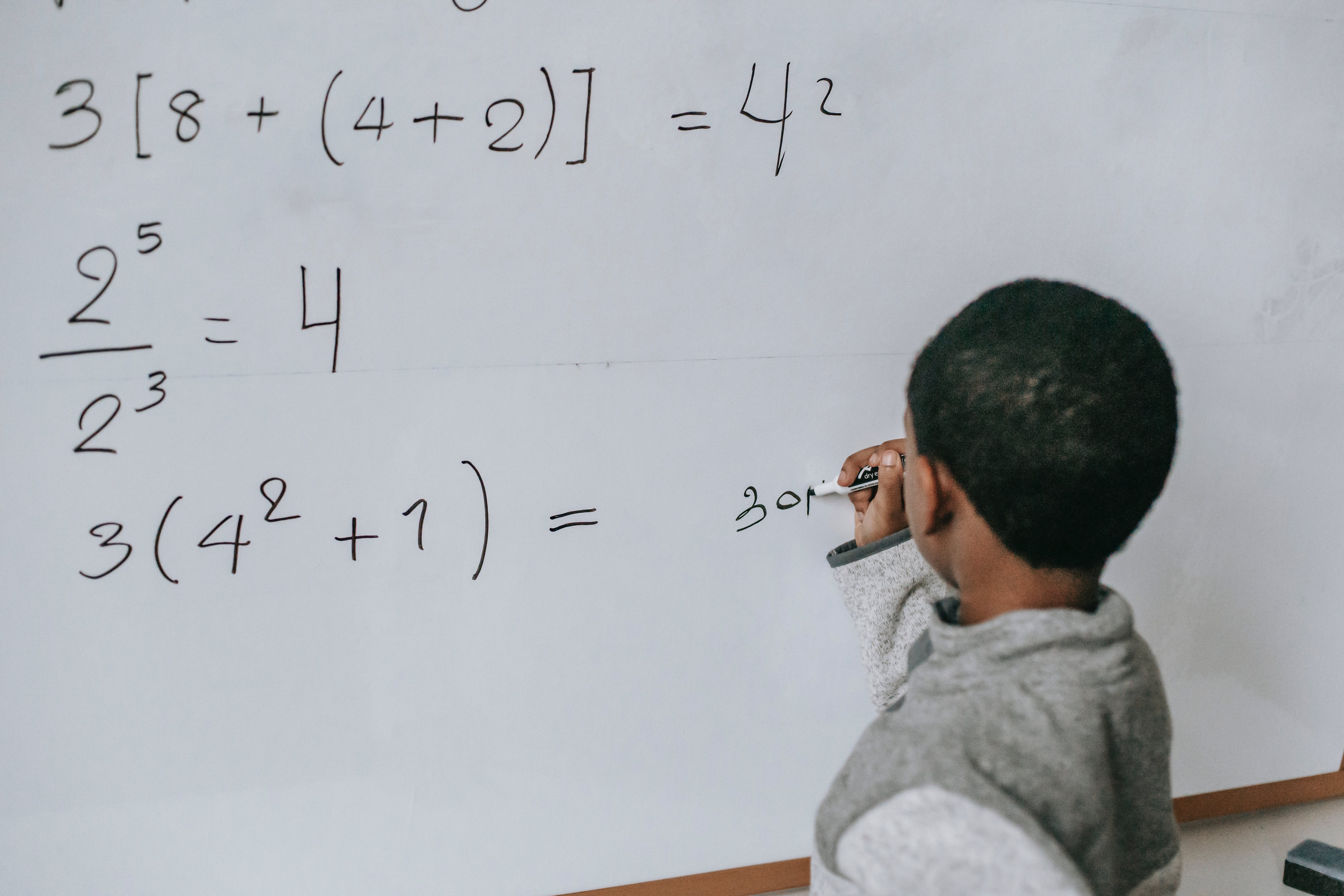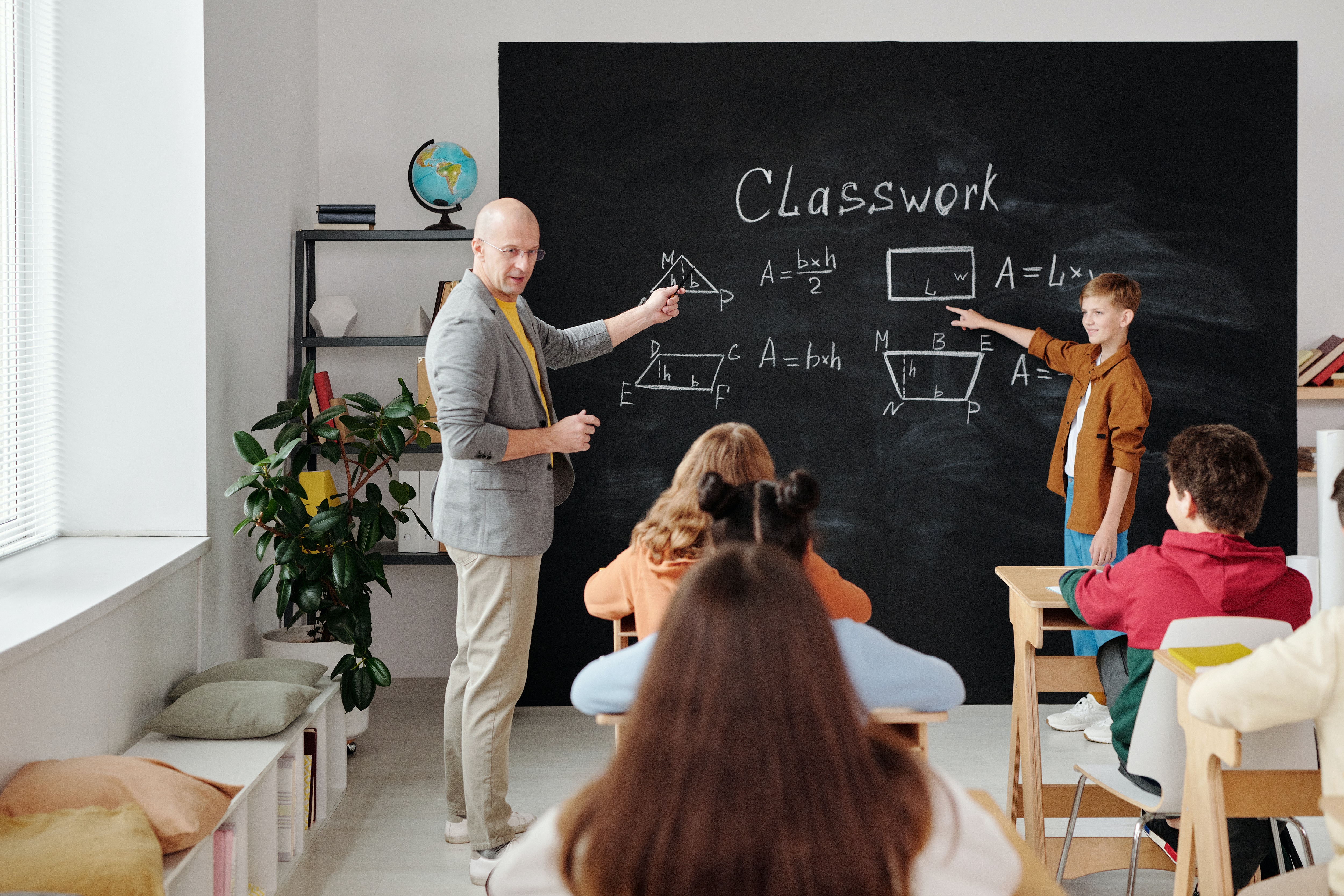
English 3 Tutoring Program (BECENG3) – Grade 3 Elementary
The English 3 Tutoring Program (BECENG3) is designed to support Grade 3 students in developing essential language skills. Through engaging lessons and personalized instruction, students will improve their reading comprehension, writing, vocabulary, and grammar. The program focuses on building confidence in language use, fostering critical thinking, and encouraging creative expression. Tailored to meet individual needs, this tutoring session ensures students achieve academic success and strengthen their foundation in English.
- Teacher: Bouyela Education Corporation

Welcome to Grade 3 French Immersion! In this exciting year, students will deepen their proficiency in the French language through a dynamic blend of reading, writing, speaking, and listening activities. Our curriculum is designed to engage students in meaningful language use and cultural exploration while developing their cognitive and academic skills.
Language Skills:
- Reading: Students will read a variety of French texts, including stories, poems, and informational texts, to build fluency and comprehension. They will practice identifying main ideas, details, and making predictions.
- Writing: Students will compose simple sentences and short paragraphs using correct grammar and spelling. Emphasis will be placed on expressing ideas clearly and creatively.
- Speaking: Interactive activities such as discussions, presentations, and role-plays will enhance students’ ability to communicate effectively in French. Pronunciation, vocabulary, and conversational skills will be a focus.
- Listening: Activities will include listening to French stories, songs, and instructions to improve understanding and responsiveness.
Cultural Awareness:
- Students will explore French-speaking cultures through celebrations, traditions, and customs. This will include learning about French holidays, famous landmarks, and daily life in Francophone countries.
Personal Development:
- Emphasis will be placed on developing students' confidence in using French in various contexts. They will also work on teamwork, responsibility, and problem-solving skills.
Throughout the year, students will participate in engaging projects and collaborative activities to reinforce their learning and make French an integral part of their daily lives. Our goal is to foster a love for the French language and culture while building strong foundational skills in all areas.
Bienvenue à une année enrichissante en immersion française!
- Teacher: Bouyela Education Corporation

Les mathématiques en troisième année de l'éducation en français au niveau élémentaire mettent l'accent sur le renforcement des compétences mathématiques fondamentales tout en stimulant un intérêt durable pour la discipline. Le programme éducatif vise à approfondir la compréhension des concepts mathématiques essentiels, tels que l'arithmétique, la géométrie et l'algèbre, chez les élèves de troisième année. Ces jeunes apprenants sont exposés à une gamme variée de problèmes mathématiques stimulants, encourageant ainsi le développement de leurs compétences en résolution de problèmes et en pensée critique. Les activités en classe favorisent la participation active, la communication orale et la collaboration, créant ainsi un environnement d'apprentissage dynamique. De plus, le programme intègre souvent des applications pratiques des mathématiques dans la vie quotidienne, illustrant ainsi la pertinence et l'utilité des concepts mathématiques au-delà de la salle de classe. L'éducation élémentaire en mathématiques en troisième année vise à doter les élèves des compétences mathématiques nécessaires tout en les encourageant à explorer et à apprécier la beauté et l'utilité des mathématiques dans leur vie quotidienne.
- Teacher: Bouyela Education Corporation

L'enseignement en français au niveau élémentaire, notamment en troisième année, se concentre sur le développement des compétences essentielles tout en nourrissant un amour durable pour la langue française et la culture francophone. Le programme éducatif vise à approfondir la compréhension de la grammaire, de la lecture et de l'écriture chez les élèves de troisième année. Ces derniers sont exposés à une variété de textes captivants, allant de la littérature classique à des œuvres contemporaines, afin de renforcer leur compréhension et leur expression écrite. Les activités en classe encouragent la participation active, l'expression orale et la collaboration, créant ainsi un environnement d'apprentissage dynamique. De plus, le programme intègre fréquemment des éléments culturels, artistiques et historiques pour élargir la perspective des élèves et les sensibiliser à la richesse de la francophonie. L'éducation élémentaire en français en troisième année vise à préparer les élèves à une maîtrise solide du français tout en les inspirant à embrasser la diversité linguistique et culturelle.
- Teacher: Bouyela Education Corporation
Children’s early learning experiences have a profound effect on their later development.
The health and physical education program for Grades 1 to 3 therefore focuses on the
foundational knowledge and skills that students will need in order to support mental
health and well-being, develop physical and health literacy, and acquire the commitment
and capacity to lead healthy, active lives. Through participating in health and physical
education in the classroom and gymnasium, out of doors, in schoolyards and school gardens,
and in the community, students learn to make healthy active living a part of everyday life.
The expectations in these grades provide opportunities for students to strengthen their
oral language and knowledge of subject-specific vocabulary, their kinesthetic awareness
and understanding of movement concepts, their capacity for imagining, pretending, and
reflecting, and their higher-order thinking skills. All of this learning builds on the foundation laid in the learning expectations of the Kindergarten program, particularly in the areas
(Kindergarten “frames”) of Self-Regulation and Well-Being, which includes learning about
healthy active living and its effects on the mind and body, and Belonging and Contributing.
- Teacher: Bouyela Education Corporation

In Grade 3 social studies, students are introduced to some of the diverse communities
that existed in Canada between approximately 1780 and 1850. Students will explore what
life was like for different groups of people during that time period and will compare the
lives of these people to those of present-day Canadians. They will use primary sources
such as journals, letters, maps, and paintings to investigate how people in early Canada
responded to challenges in their lives. Students will also learn about the physical and
municipal regions of Ontario. They will explore the relationship between the natural
environment, land use, and employment opportunities, and how different uses of land
and resources affect the environment. Students will continue to develop their spatial
skills, extracting information from graphs, globes, and maps, constructing print and
digital maps, and using mapping programs to help them determine the relationship
between the environment and land use in both the past and the present.
The Grade 3 social studies expectations provide opportunities for students to explore
a number of concepts connected to the citizenship education framework (see page 10),
including beliefs and values, culture, identity, relationships, and stewardship.
The following chart presents an overview of the Grade 3 social studies curriculum and
is meant to provide a starting point for planning instruction. For each overall expectation
(listed in the first column), it identifies a related concept (or concepts) of social studies
thinking and a big idea (see pages 14 and 13 for an explanation of big ideas and the
concepts of disciplinary thinking and page 60 for definitions of the concepts of social
studies thinking). General framing questions are provided for each strand to stimulate
students’ curiosity and critical thinking and to heighten the relevance of what they are
studying. These broad and often open-ended questions can be used to frame a set of
expectations, a strand, or a cross-disciplinary unit. The final column suggests ways in
which spatial skills can be introduced and/or developed at this grade level and indicates
specific expectations with which they can be used (see page 25 for a description of
spatial skills).
- Teacher: Bouyela Education Corporation

A. LISTENING OVERALL EXPECTATIONS
By the end of Grade 3, students will:
- A1. Listening to Understand: determine meaning in a variety of oral French texts, using appropriate listening strategies;
- A2. Listening to Interact: interpret messages accurately while interacting in French for a variety of purposes and with diverse audiences;
- A3. Intercultural Understanding: demonstrate an understanding of information in oral French texts about aspects of culture in diverse French-speaking communities and other communities around the world, and of French sociolinguistic conventions used in a variety of situations and communities.
B. SPEAKING OVERALL EXPECTATIONS
By the end of Grade 3, students will:
- B1. Speaking to Communicate: communicate information and ideas orally in French, using a variety of speaking strategies and age- and grade-appropriate language suited to the purpose and audience;
- B2. Speaking to Interact: participate in spoken interactions in French for a variety of purposes with diverse audiences;
- B3. Intercultural Understanding: in their spoken communications, demonstrate an awareness of aspects of culture in diverse French-speaking communities and other communities around the world, and of the appropriate use of French sociolinguistic conventions in a variety of situations.
C. READING OVERALL EXPECTATIONS
By the end of Grade 3, students will:
- C1. Reading Comprehension: determine meaning in a variety of French texts, using a few reading comprehension strategies;
- C2. Purpose, Form, and Style: identify the purpose(s) and characteristics of a variety of adapted and authentic text forms, including fictional, informational, graphic, and media forms;
- C3. Intercultural Understanding: demonstrate an understanding of information in French texts about aspects of culture in diverse French-speaking communities and other communities around the world, and of French sociolinguistic conventions used in a variety of situations and communities.
D. WRITING OVERALL EXPECTATIONS
By the end of Grade 3, students will:
- D1. Purpose, Audience, and Form: write in French in a variety of forms and for a variety of purposes and audiences, using knowledge of vocabulary and stylistic elements to communicate clearly and effectively;
- D2. The Writing Process: use the stages of the writing process – including pre-writing, producing drafts, revising, editing, and publishing – to develop and organize content, clarify ideas and expression, correct errors, and present their written work effectively;
- D3. Intercultural Understanding: in their written work, demonstrate an awareness of aspects of culture in diverse French-speaking communities and other communities around the world, and of the appropriate use of French sociolinguistic conventions in a variety of situations.
- Teacher: Bouyela Education Corporation

In Grade 3 Mathematics, students focus on developing a positive math identity, fostering well-being, and building resilience. The curriculum covers various strands with specific expectations:
Social-Emotional Learning (SEL) Skills and the Mathematical Processes: Students apply social-emotional skills to support their use of mathematical processes across all strands.
Number: Students develop number sense, understanding numbers and their everyday applications. They use their knowledge of numbers and operations to solve real-life mathematical problems.
Algebra: Students explore patterns, relationships, variables, expressions, equalities, and inequalities. They also engage in coding and mathematical modeling to solve problems and gain insights into real-life situations.
Data: Students develop data literacy skills, managing, analyzing, and using data to make informed decisions and arguments. They also learn about probability, describing likelihood and making predictions.
Spatial Sense: Students enhance geometric and spatial reasoning skills by describing shapes, locations, and movements. They also compare, estimate, and determine measurements in different contexts.
Financial Literacy: Students gain an understanding of the value and use of Canadian currency.
Throughout Grade 3 Mathematics, students build upon their foundational knowledge and skills. They develop critical thinking, problem-solving, and mathematical reasoning abilities while incorporating social-emotional learning to support their overall well-being and success as math learners.
- Teacher: Bouyela Education Corporation